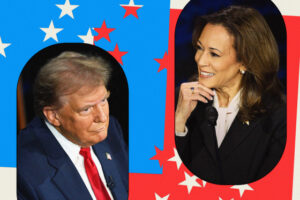By Bob Gaydos

Curt Schilling … never one to hide his feelings
It’s time for my annual turn from the front page to the back page (sports page) for some message on the meaning of life. Also, pitchers and catchers report any day now.
Typically, late January offers baseball fans an opportunity to argue (we don’t debate) about who got into the Hall of Fame and who didn’t and why. Last year was pretty mild, the only question being how one spiteful sports writer could’ve left Derek Jeter off his ballot, keeping the Yankee great from being named to the Hall unanimously of his first try. Baseball made up for that lack of drama when, in the same week, the Mets fired Carlos Beltran as their manager before he ever managed a game because he was part of a cheating scandal as a coach with the Houston Astros. Karma. So there was a lesson in good and evil on the back page.
This year, the January controversy revolved around Curt Schilling, who wasn’t elected to the Hall of Fame, even though he and 71.1% of the 401 sports writers who voted thought he belonged. A player needs 75% of the ballots to get in. Schilling needed 16 more votes. A star pitcher for Arizona and Boston, he fancies himself as a bit of an outspoken character. As fate would have it, he seems to have run afoul of baseball’s “character” clause. That is, he probably didn’t get enough votes not because he wasn’t a good enough player, but rather, because his presence in the Hall of Fame would somehow tarnish the name of Major League Baseball. He wasn’t a good enough person.
A little about Schilling: His pitching credentials, in my opinion, are borderline Hall of Fame. He was a star in postseason play. I wouldn’t be too put out if he got in. On the other hand, I’m not a fan of his human-being credentials. He has espoused far-right conspiracy theories, compared Muslims to Nazis, said Hillary Clinton should “be buried under a jail somewhere“ and has spoken out vigorously against transgender people, among other things. He also enthusiastically endorsed a suggestion posted on social media that sports writers be hanged. (Since that’s who votes on Hall of Fame candidates, this was also a stupid thing to do, in my opinion.)
But should stupidity or bigotry be reasons for disqualification from the Hall of Fame? (History says no.) And should baseball writers be the ones making that decision? These are the questions to ponder while waiting for the impeachment trial.
Schilling has asked that his name be taken off the list of next year’s candidates. It would be his tenth and final year of eligibility and there’s been a lot of speculation, based on the history of other players, that he probably would manage to eke out that 75%. Schilling said he’d rather put his fate in the hands of another committee, which considers umpires, managers and other non-players as well as those who did not make the hall during their eligibility period. Apparently, he feels this group wouldn’t care how much he mouthed off about hanging sports writers or how much he hates Hillary and loves Donald Trump. The Board of Directors of the Hall of Fame said they would consider Schilling’s request.
Of course, Schilling isn’t the only one of current Hall-eligible players running up against the “character” issue. Barry Bonds and Roger Clemens, two dominant players whose Hall of Fame credentials are beyond question, also did not receive enough votes. That’s because they were part of baseballs “juicing era,“ when many players used steroids and other substances to enhance their performances on the field. To me, this would come under the heading of cheating, which one would think would qualify as being harmful to the image of baseball. Being not of good character. But neither man was penalized by major league baseball for using performance enhancing drugs and both have been on the Hall of Fame eligibility list for nine years, just like Schilling.
It would seem to me, if baseball wants to have a character clause in deciding who gets into the Hall of Fame, it should apply that clause beforehand and decide which players do not even belong on the annual list, rather than leaving it to sportswriters. (I can’t think of a more qualified group to do the actual voting, as has been suggested.) That makes the writers’ task much simpler. If he’s on the list, just judge him on his on-field performance and nothing else. His character is OK with us. In that case, Bonds and Clemens would be shoe-ins.
Schilling to me would still remain borderline, a man with far-right extremist views who was also a very good pitcher. Someone who, ironically, was removed by ESPN as its commentator on the 2015 Little League World Series because he posted something on social media comparing Muslims to Nazis and who the next year was fired by ESPN for an anti-transgender post on social media. In those cases, I think ESPN made the right decision, for the good name of baseball and for them as journalists.
So, this year’s lesson from the sports pages: If you want to be fussy about what kind of people can come into your home, you set the rules and you make the decision. Don’t give some strangers that responsibility. Also, if you’re going to shoot your mouth off with hateful nonsense, be prepared for the consequences.
For me, Schilling can go to Cooperstown or not, just don’t ask me to have lunch with that bigoted, loudmouth jerk.
rjgaydos@gmail,com
Bob Gaydos is writer-in-residence at zestoforange.com.

